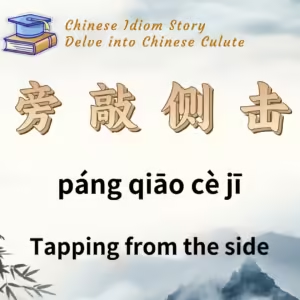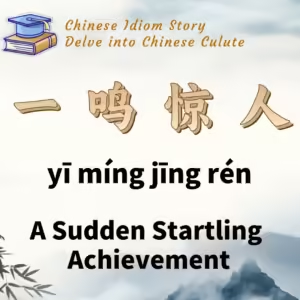
Chinese Idiom: 乐极生悲 (Le Ji Sheng Bei)
English Translation: Extreme joy leads to sorrow
pīn yīn: lè jí shēng bēi
Idiom Meaning: This idiom suggests that experiencing the highest level of happiness or success often leads to subsequent misfortune or sadness.
Historical Source: Huainanzi (《淮南子》)
Idiom Story:
During the Warring States period in China, there was a diplomat named Chunyu Kun (淳于髡) from the Qi state. He was well-regarded by King Wei of Qi for his diplomatic skills and ability to offer counsel. Chunyu Kun was known for his approach of using allegory and subtle hints rather than direct criticism when advising the king.
On one occasion, after a successful diplomatic mission where Chunyu Kun secured military aid, King Wei was overjoyed and invited Chunyu Kun to celebrate with him. However, Chunyu Kun noticed that King Wei had not completely abandoned his old habit of excessive drinking and decided to offer advice through another allegory during the feast.
When King Wei asked Chunyu Kun how much wine he could drink before becoming drunk, Chunyu Kun replied that he would be drunk after drinking one measure of wine, but could manage even more in a more relaxed setting. He elaborated that if the circumstances were such that there were no restrictions and he was surrounded by merriment and revelry, he could drink even ten measures. This was because, in a state of extreme joy, one’s behavior can become unrestrained.
Chunyu Kun’s point was that, just as excessive drinking can lead to disorder, extreme happiness can eventually lead to misfortune. His clever advice highlighted the principle that excess, whether in pleasure or indulgence, often brings about negative consequences.
King Wei was impressed by Chunyu Kun’s wisdom and resolved to moderate his drinking habits. This story illustrates the idiom “乐极生悲” (lè jí shēng bēi) by showing that excessive joy can lead to eventual sorrow, reinforcing the concept that balance is crucial in all aspects of life.






